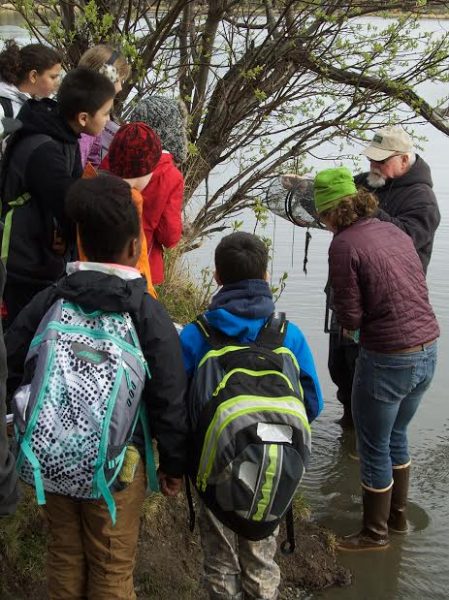Marine science symposium offers teaching ideas
January 17, 2017
Paula Dobbyn
907-274-9698

The 2017 Alaska Marine Science Symposium will be held in Anchorage from Jan. 23-27 at the Hotel Captain Cook. More than 800 scientists, educators and others are expected to attend the event, which will include professional development opportunities for teachers.
The weeklong symposium focuses on current research in diverse aspects of Alaska’s marine environment — from climate effects and plankton to marine birds and mammals and the human role in the ecosystem. Presentations will cover topics in the Gulf of Alaska, Bering Sea, Aleutian Islands, and the Arctic.
The symposium will feature opportunities for teachers and other educators to learn more about how to incorporate marine research into K-12 classrooms, and the $100 conference registration fee is waived for participating K-12 teachers.
Attendees who teach grades 6-12 can enroll in a one-credit professional development course, STEM: Marine Research Connections in the K-12 Classroom. The course will deepen participants’ knowledge of oceanography and marine science, and allow them to develop lesson plans for their classrooms. A special Ocean Science Educator’s Night event is scheduled for 5:30-7:30 p.m. on Tuesday, Jan. 24. The Anchorage School District will also celebrate Ocean Week with visits by marine scientists to classrooms during the week of the symposium.
The symposium begins Monday with a workshop focused on ocean science communication and education, with two sessions of interest to teachers — one on “what works” in scientist-educator partnerships and another about communicating and teaching about ocean acidification. On Monday afternoon, keynote presentations will highlight Arctic marine research, the future of ocean warming trends, past extinctions of marine animals from Steller’s sea cow back to the time of dinosaurs, and the experiences and perspectives of two participants in the Arctic Youth Ambassadors Program.
Research presentations will continue Tuesday on Gulf of Alaska marine ecosystems, Wednesday on Bering Sea/Aleutian Islands marine ecosystems and Thursday on Arctic Ocean marine ecosystems. Poster sessions will be held on Monday and Tuesday evenings from 6:30 to 8:30 p.m. Symposium presentation sessions will be at the Hotel Captain Cook, and poster sessions will take place at the Egan Convention Center.
Sessions for educators are cosponsored by Alaska Sea Grant, the North Pacific Research Board, the Alaska Ocean Observing System and the National Oceanic and Atmospheric Administration's Alaska Fisheries Science Center.
For more information, to view the symposium schedule, and to register, visit the symposium website. Teachers interested in enrolling in the one-credit course can contact Alaska Sea Grant marine education specialist Marilyn Sigman, msigman@alaska.edu or 907-274-9612.
ON THE WEB: www.alaskaseagrant.org
Alaska Sea Grant is a statewide marine research, education and outreach program, and is a partnership between the University of Alaska Fairbanks and the National Oceanic and Atmospheric Administration. Alaska Sea Grant Marine Advisory agents provide assistance that helps Alaskans wisely use, conserve and enjoy marine and coastal resources.


